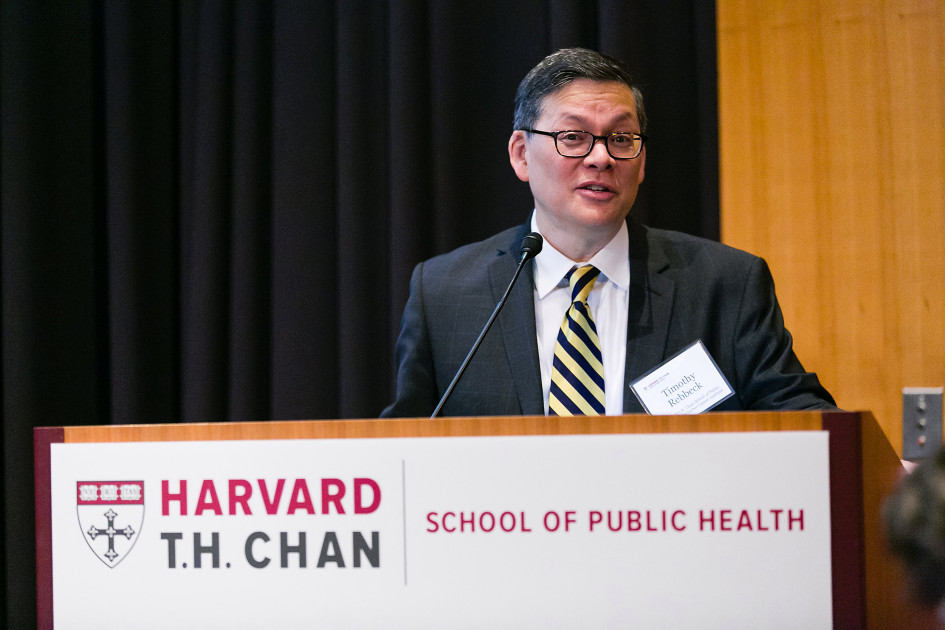
Amid alarming projections that global cancer rates will skyrocket, researchers from around the country gathered at Harvard on Monday to share their latest findings and to launch a center whose aim is to boost early detection and prevention.
By 2040, deaths due to cancer are expected to rise 60 percent in the U.S., 79 percent in China, and 106 percent in sub-Saharan Africa, according to Timothy Rebbeck, Vincent L. Gregory Jr. Professor of Cancer Prevention at the Harvard T.H. Chan School of Public Health and director of the School’s new Zhu Family Center for Global Cancer Prevention. The center was launched Monday on World Cancer Day.
“I think that we have the very clear picture that … while we have many interventions and treatments and ways of approaching cancer, we’re still not anywhere near dealing with the coming onslaught of the cancer burden,” Rebbeck said.
In the last century, Rebbeck pointed out, medical science has made inroads against several of humanity’s top killers, including infectious disease and heart disease, but cancer has proven stubborn.
A look at the top 10 killer cancers shows that, while the disease is a burden around the world, the mix of cancers varies by region. In the U.S. and China, for example, lung cancer is the top killer, while in sub-Saharan Africa it is cervical cancer, a sign that the latest treatments are slow to be distributed there. An effective vaccine against the human papilloma virus — one of the top causes of cervical cancer — has been available for more than a decade.
In addition, Rebbeck said, although smoking rates are falling in many places, that’s not the case in Africa and the eastern Mediterranean, where the rates are rising. As a result, rates of smoking-related cancers are expected to rise there as well.
Rebbeck made his comments at the new center’s inaugural symposium, “Reinventing Cancer Prevention and Early Detection for the 21st Century,” held in Harvard Medical School’s New Research Building. The all-day gathering featured experts from around the country discussing the latest findings in their work to prevent cancer and detect cancers earlier.
Harvard Chan School Dean Michelle Williams said the center’s aim fits well with public health’s broad philosophy that “it’s far better to prevent illness than treat it.”
When it comes to most types of cancer, Williams said effective prevention seems a distant goal, but she hopes for a time when cancer is seen like smallpox is today — a once-dreaded disease fading from view.
“Imagine some day in the future, it might be possible that we no longer need symposia like this, or that we would need a World Cancer Day to draw attention to the devastation of this disease,” Williams said. “Perhaps because of the scientific advances sparked by the work of this interdisciplinary center … future generations will look upon cancer as a disease of the past.”
The center, Rebbeck said, will encourage innovations in methods, technology, and tools to combat cancer. It will encourage multidisciplinary teams to bring broad perspectives to bear, and will make health equity and global dissemination of innovations a goal. It will offer a new grant program for researchers doing innovative work at Harvard and a second grant to African scientists conducting “catalytic research” on that continent. The center will support cancer prevention education and training, and create two endowed chairs in cancer prevention and early detection, one for a full professor and a second for an assistant or associate professor.
